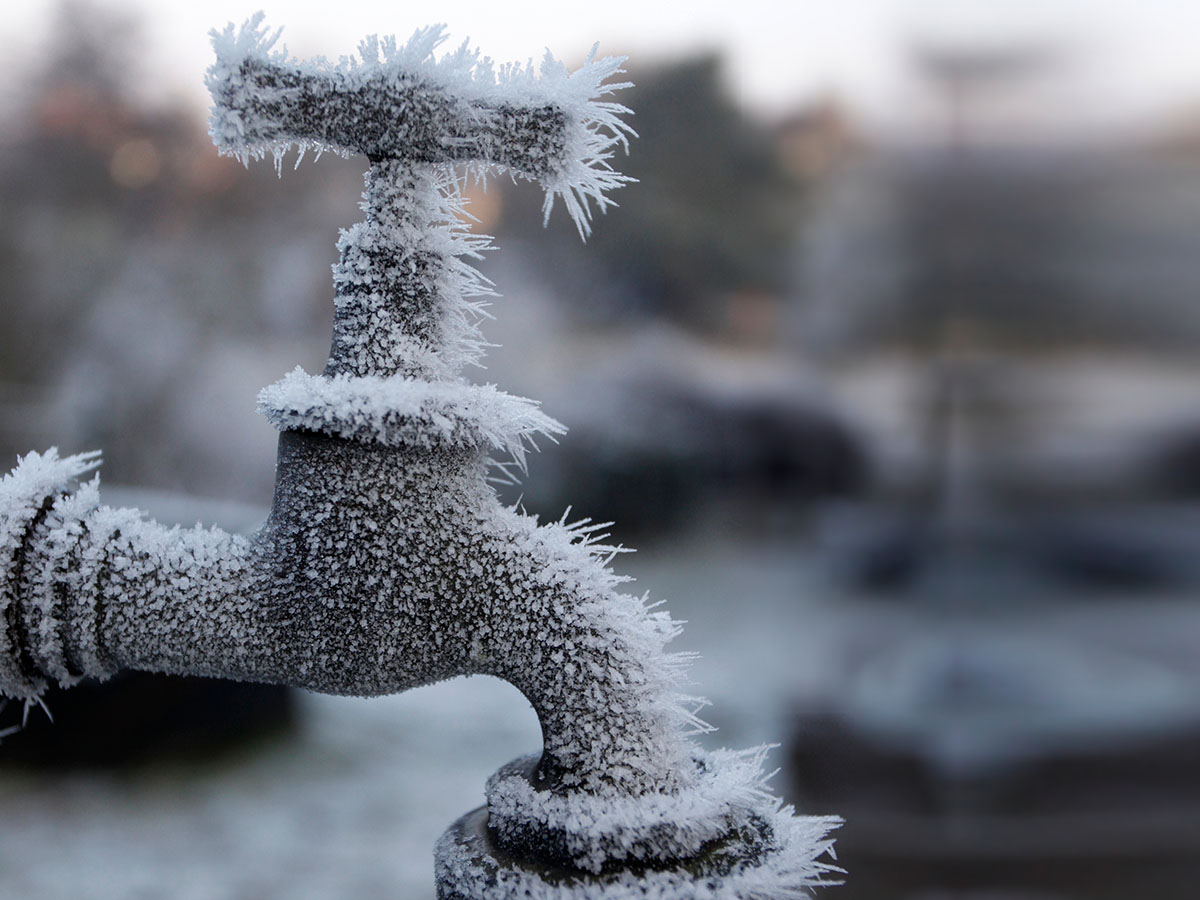Tips to Avoid Frozen Pipes in Cold Weather: Professional Tips
Tips to Avoid Frozen Pipes in Cold Weather: Professional Tips
Blog Article
The article author is making several great pointers relating to Winter Plumbing Precautions: Preventing Frozen Pipes in general in this content beneath.

Winter can damage your plumbing, specifically by freezing pipes. Here's just how to avoid it from happening and what to do if it does.
Intro
As temperatures decline, the danger of icy pipes rises, potentially leading to expensive repairs and water damages. Understanding exactly how to stop frozen pipelines is essential for home owners in cold climates.
Avoidance Tips
Insulating susceptible pipelines
Cover pipelines in insulation sleeves or use warm tape to shield them from freezing temperatures. Focus on pipes in unheated or outside locations of the home.
Home heating techniques
Keep indoor areas adequately heated, especially areas with pipes. Open up closet doors to permit warm air to flow around pipes under sinks.
Just how to identify icy pipelines
Search for decreased water flow from faucets, uncommon odors or sounds from pipelines, and noticeable frost on subjected pipes.
Long-Term Solutions
Architectural changes
Think about rerouting pipelines away from exterior wall surfaces or unheated areas. Include additional insulation to attic rooms, basements, and crawl spaces.
Upgrading insulation
Buy top notch insulation for pipes, attic rooms, and wall surfaces. Proper insulation aids preserve regular temperature levels and decreases the threat of frozen pipelines.
Safeguarding Exterior Plumbing
Yard tubes and outside taps
Disconnect and drain yard hoses before winter months. Install frost-proof spigots or cover exterior taps with insulated caps.
Comprehending Icy Pipelines
What causes pipes to freeze?
Pipes ice up when revealed to temperature levels below 32 ° F (0 ° C) for extended periods. As water inside the pipes freezes, it expands, putting pressure on the pipe walls and potentially triggering them to rupture.
Dangers and damages
Frozen pipes can lead to supply of water interruptions, building damages, and pricey repair services. Ruptured pipes can flood homes and cause considerable architectural damages.
Signs of Frozen Pipeline
Identifying icy pipelines early can stop them from bursting.
What to Do If Your Pipes Freeze
Immediate activities to take
If you believe icy pipelines, keep taps open to ease pressure as the ice melts. Make use of a hairdryer or towels soaked in hot water to thaw pipelines slowly.
Verdict
Protecting against frozen pipes requires positive actions and fast actions. By recognizing the causes, indicators, and safety nets, house owners can protect their pipes during winter.
Helpful Tips to Prevent Frozen Pipes this Winter
UNDERSTANDING THE BASICS: WHY PIPES FREEZE AND WHY IT’S A PROBLEM
Water freezing inside pipes is common during the winter months, but understanding why pipes freeze, and the potential problems it can cause is crucial in preventing such incidents. This section will delve into the basics of why pipes freeze and the associated problems that may arise.
THE SCIENCE BEHIND FROZEN PIPES
When water reaches freezing temperatures, it undergoes a physical transformation and solidifies into ice. This expansion of water as it freezes is the primary reason pipes can burst. As the water inside the pipe freezes, it expands, creating immense pressure on the walls. If the pressure becomes too great, the pipe can crack or rupture, leading to leaks and water damage.
FACTORS THAT CONTRIBUTE TO PIPE FREEZING
Low Temperatures: Extremely cold weather, especially below freezing, increases the risk of pipes freezing. Uninsulated or Poorly Insulated Pipes: Pipes located in unheated areas, such as basements, crawl spaces, or attics, are more prone to freezing. Insufficient insulation or lack of insulation altogether exacerbates the problem. Exterior Wall Exposure: Pipes running along exterior walls are susceptible to freezing as they encounter colder temperatures outside. Lack of Heating or Temperature Regulation: Inadequate heating or inconsistent temperature control in your home can contribute to frozen pipes. PROBLEMS CAUSED BY FROZEN PIPES
- Pipe Bursting: As mentioned earlier, the expansion of water as it freezes can cause pipes to burst, resulting in significant water damage.
- Water Damage: When pipes burst, it can lead to flooding and water damage to your property, including walls, ceilings, flooring, and personal belongings.
- Structural Damage: Prolonged exposure to water from burst pipes can compromise the structural integrity of your home, leading to costly repairs.
- Mold and Mildew Growth: Excess moisture from water damage can create a favorable environment for mold and mildew growth, posing health risks to occupants.
- Disrupted Water Supply: Frozen pipes can also result in a complete or partial loss of water supply until the issue is resolved.
WHY CERTAIN PIPES ARE MORE PRONE TO FREEZING
- Location: Pipes located in unheated or poorly insulated areas, such as basements, crawl spaces, attics, or exterior walls, are at higher risk of freezing.
- Exterior Pipes: Outdoor pipes, such as those used for irrigation or exposed plumbing, are particularly vulnerable to freezing as they are directly exposed to the elements.
- Supply Lines: Pipes that carry water from the main water supply into your home, including the main water line, are critical to protect as freezing in these lines can affect your entire plumbing system.
- Underground Pipes: Pipes buried underground, such as those connected to sprinkler systems or outdoor faucets, can be susceptible to freezing if not properly insulated.
https://busybusy.com/blog/helpful-tips-to-prevent-frozen-pipes-this-winter/

Do you really like reading up on Helpful Tips to Prevent Frozen Pipes this Winter? Place a short review down below. We will be happy to find out your suggestions about this write-up. We hope to see you back again in the future. Do you know somebody who is fascinated by the niche? Take a moment to promote it. I value your readership.
Schedule Appointment Report this page